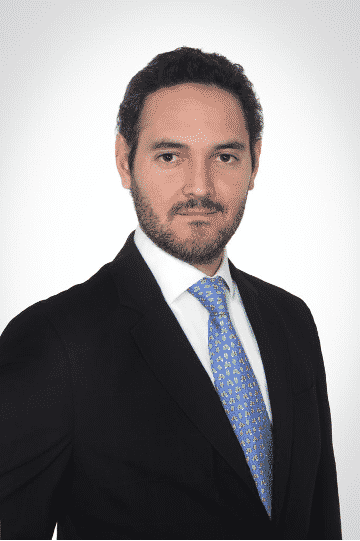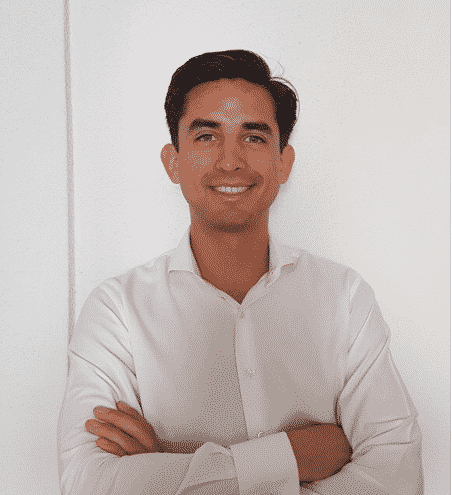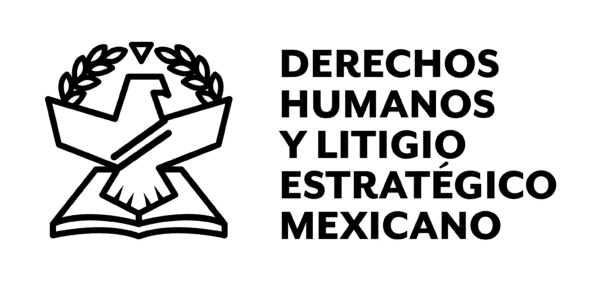Please present yourselves:

DLM was founded in 2015 by Jorge Cardoso and Carlos Guerrero, both with experience in accountability and anti-corruption, with the objective of identifying common problems and proposing solutions that impact authorities and the private sector.
I’m Jorge A. Cardoso Sánchez, co-founder and secretary of the board of DLM. I am also the managing partner and founder of the law firm Cardoso Sánchez Abogados, S.C. I have worked for the Federal Court of Tax and Administrative Justice (currently Federal Court of Administrative Justice), for Grupo Modelo (AB InBev) and for specialized law firms in Mexico City. I hold a law degree from Escuela Libre de Derecho in Mexico City and a master’s degree in constitutional procedural law from Universidad Panamericana in the same city. I have specialized in Amparo Law (Escuela Libre de Derecho) and in Economic Competition (International Chamber of Commerce or ICC).

My name is Carlos G. Guerrero Orozco, consultant and litigation attorney based in Mexico City. I am specialized in matters related to governmental development, transparency and accountability, with more than ten years of experience. I am co-founder and chair of the board of DLM. I’m also an associate attorney at López Melih y Estrada, a top Mexican law firm specialized in civil, commercial and administrative litigation, leading compliance and anticorruption litigation practice for private sector companies. I have consulted the Inter-American Development Bank (Washington, D.C.) and Transparency International (Madrid) on anticorruption matters. In Mexico I have been a litigation attorney on administrative and constitutional matters for top law firms in the country. I hold a law degree from the Escuela Libre de Derecho (Mexico City) and a Master’s degree in government and public administration from the Instituto Universitario de Investigación Ortega y Gasset (Madrid), where I defended my thesis on “Reparation of harm suffered as a consequence of acts of corruption in Mexico.”
What are your organization’s main goals?
Derechos Humanos y Litigio Estratégico Mexicano, A.C. (DLM), is a Mexican civil society organization. DLM demands accountability in Mexico and Latin America from a human rights perspective. The strategic areas that DLM focuses on are: (i) independence of judges and prosecutors; (ii) technical support to other CSOs, citizen collectives, human rights defenders and individuals for support in trials and proceedings; (iii) integrity in public procurement; (iv) generation of anti-corruption knowledge.
DLM’s main goal is to promote and defend human rights and the strengthening of the rule of law in Latin America and Mexico, regarding accountability, transparency and anti-corruption matters. DLM considers it fundamental to inform citizens and spread awareness about the inherent links between corruption and human rights violations. One of DLM’s main objectives is to promote civil society participation in public affairs and to expose existing barriers imposed by the state on civil society organizations over the legal standing (legitimate interest) they require to appear formally before courts, in order to fulfil their social objectives.
By conducting and/or handling national and international projects (partnering with experts and organizations based in the United States – New York, Washington D.C., Austria, Germany, Ecuador, Bolivia and Peru), litigation cases presented before national and international courts and forums and public interest reports, DLM seeks to produce knowledge on anti-corruption issues that could be used as a basis for colleagues around the world. We seek to act as a bridge between civil society and the Mexican State in representing the needs and desires of the Latin and Mexican community, as well as to become an actor that promotes the exchange of ideas and, through litigation cases, collaborates on the production of judicial precedents in said matters.
How does your organization operate?
DLM operates through the effort, passion and hard work of young women and men who are interested in accountability, transparency and anti-corruption issues. These range from lawyers and litigation specialists to individuals interested in international law. DLM’s structure consists of four interrelated departments: strategic litigation, project management, crowdfunding, and social communications.
What are the biggest successes your organization has accomplished in the field of anti-corruption in the past years?
- Through a strategic litigation case, DLM held the Attorney General of Mexico accountable regarding his unlawful appointments of Specialized Prosecutors – who are supposed to be autonomous and independent – such as the head of the Anti-Corruption Prosecutor’s Office and the Human Rights Prosecutor’s Office. This has made an impact on the yearly evaluation conducted by civil society organizations and public interest organizations and agencies on the performance of the nine-year term of the Attorney General.
- Through litigation strategy and a partnership with dozens of Mexican organizations, in February 2020 DLM helped to stop the approval of a weak Criminal Prosecution Plan designed by the Attorney General of the country. This case had an impact on the victims of crime, organizations and human rights defenders, since a regressive and limited prosecution plan was not passed by the Senate.
- We developed a reporting platform in times of COVID-19 called “#WhistleblowingCorruptionCoronavirus” or “#DenunciaCorrupcionCoronavirus, enabling reporting on any act of corruption during treatment and diagnosis for the deadly virus in Mexico’s public and private hospitals. This platform, developed in collaboration with the Transparency and Anti-corruption Initiative (ITAC) of the School of Governance and Public Transformation of the Tec de Monterrey – the university with the biggest endowment in the country – set standards for whistleblowers in Mexico through the handling of more than 400 reports in eight months. The platform was selected by the Paris Peace Forum as a tool that enables development in times of crisis. The platform has also impacted accountability within public administration.
- Regarding our strategy towards the recognition of CSOs’ legal standing, DLM achieved formal recognition through a court ruling for two migration organizations, as entities that could defend migrants and asylum seekers before Federal Courts. The work of DLM has also helped with the granting of an injunction by a Federal Judge, to constrain the Mexican Government (more than seven national agencies and over five local agencies) to take specific actions to protect migrants and asylum seekers in times of COVID-19.
What are the key challenges specific to your local context that your organization has been facing?
Corruption impacts society and citizens in different ways. It has political, economic, financial and social effects, as well as institutional and administrative consequences. To this end, corruption makes it difficult or impossible for the justice system to function, restricts the citizen’s vote, increases inefficient public spending, contributes to black market activity, reduces the productivity of public investment and acts as an arbitrary tax. Corruption erodes confidence in the state and impacts the political legitimacy of public actors. In the Mexican context, CSOs like DLM which are working to tackle corruption are facing several challenges and restrictions, such as:
- The lack of recognition of legitimate interest (“legal standing”). This argument presented by courts or governmental agencies and acting as a barrier, impedes the analysis of human rights violations – such as the right to live in an environment without corruption – allowing them to escape the exercise of judicial scrutiny.
- Restrictions imposed on CSOs’ social objectives and their tax regimes.
- Lack of engagement from the authorities on CSOs’ social objectives.
- The concealing and blocking of information and statements provided by authorities.
- Attacks and public pressure placed on CSOs as a result of the work that has been done.
What can other organizations learn from you?
- How we have set up DLM’s strategic lines of work, including partnerships with the international community.
- The annual evaluation of our work among our board’s organizations and our partners, focusing on efforts to promote good practices in a regional context.
- The creation of partnerships with national and international organizations as one of our main objectives, to make our work known and to achieve better outcomes by multiplying our efforts and assuming collective responsibility.
- Technically advising other organizations, as a means to strengthen the results of civil society work.
- Communicating our results and work through social media and newsletters, meeting educational goals with respect to society and citizens, as well as in the disseminating of good practices, findings and precedents to the legal profession and contributing to public opinion.
To what extent has your organization been involved in the UNCAC Review Mechanism?
DLM has been involved with the UNCAC review mechanism regarding access to information and the UNCAC’s enforcement before Mexican courts.
We have submitted our opinion and considerations to the FACTI Panel Interim report, to claim that the support of civil society organizations in legal battles to counter corruption is critical.
Regarding access to information, DLM has recently written a report regarding the right to privacy of public officials in Mexico, as well as access to information, freedom of expression and the protection of journalists and the press, where UNCAC standards have been identified for public officials.
What motivates you/inspires you to work in anti-corruption?
Human rights protection; defending vulnerable groups; good public administration; and protecting the rule of law is what inspire us every day.
We are motivated to provide capacity-building to CSOs and individuals to promote anti-corruption work in the face of a challenging era, where accountability should be prioritized on the public agenda, in order to avoid constant violations of human rights, which corruption entails.
What is an anti-corruption achievement you are proud of?
We are very proud to have been able to present the project “#DenunciaCorrupcionCoronavirus“ at the Paris Peace Forum. In front of an international forum, we were able to discuss whistleblower rights in the midst of an international emergency.
In addition, we are proud of DLM’s outcomes on litigation against the Anti-Corruption Prosecutor’s appointment as part of our efforts to promote the independence of law enforcement agencies and public prosecutors in Mexico.
What have you learned from your organization’s work in anti-corruption that could be useful to others?
From our work in anti-corruption, we have come to realize the importance of CSO advocacy for transparency and accountability, the barriers within the Mexican legal framework in the battle against corruption, and how to overcome them. Corrupt acts are normalized, deep-seated and structured, and the best way to change this behavior is by addressing the problem from different perspectives. At the same time, it is crucial to organize efforts to educate society and spread awareness that corruption affects us all, it harms democracy and our societies, and even more so outcasts and so-called vulnerable groups. The impact we make must be relevant and proportionate, and communication is essential for reaching our goals. Monitoring and evaluation are operational measures through which we fulfil our responsibilities.
Why is it important for you and your organization to be a member of the UNCAC Coalition?
Although the UNCAC’s enforcement should be a priority for national and local governments, states have failed to effectively promote the standards set by the UN in this international convention. This is why it is important for us and for DLM to be part of the UNCAC Coalition. DLM has addressed this problem and through its work, has been promoting the enforcement of UNCAC. Membership in the UNCAC Coalition gives us the opportunity to learn, share and promote good practices on an international level.
Is there anything that you would like to share that has not yet been mentioned?
As part of DLM’s work we have released multiple reports that we would like to share with this international community:
- Right to Privacy of Public Officials in Mexico: Freedom of expression and the duty to protect journalists and Freedom of the press. Memorandum regarding the situation in Mexico
Executive report that analyzes the impacts of impunity, corruption, censorship and limitations to freedom of expression by state agents. - Legitimate interest of CSOs in the Mexican constitutional proceeding (in Spanish, “El interés legítimo de las organizaciones civiles en el amparo mexicano”)
Along with Tirant le Blanch and the Escuela Libre de Derecho we presented an analysis about the legal standing of CSOs in Mexico, showcasing the ambiguity and lack of understanding of this concept by the courts. - “Fiscalometro”
A collective corruption analysis of the Mexican impunity pandemic. A study on the performance of the attorney general of the republic, reforms to the organic law of the attorney general’s office, the appointment of specialized prosecutors and the justice crisis in Mexico due to institutionalized corruption. - Judicial Reform in Mexico: An Analysis from a Corruption and Human Rights Perspective (in Spanish, “Reforma Judicial en México: Un analisis desde la perspectiva de la Corrupción y Derechos Humanos”)
Technical analysis of some essential aspects of the reforms to the structure, nature and powers of the organs of administration of justice in Mexico that make up the Federal Judicial Power, with the objective of establishing their direct and indirect effects on the independence of the Mexican justice system at the federal level. - Corruption & Human Rights in times of COVID-19 (in Spanish, “Corrupción y Derechos Humanos en tiempos de Covid-19”)
Executive report that presents the state of corruption in times of coronavirus in Mexico, based on the actions and projects of federal authorities, civil organizations, the media and academia. It analyzes the impact that corruption has on human rights in the context of the health emergency, as well as the alternatives that international organizations have given to promote accountability and monitor irregularities in a pandemic. - The platform #WhistleBlowingCorruptionCoronvirus (in Spanish, “#DenunciaCorrupcionCoronavirus”)
The platform has been listening to the Mexican population in times of COVID-19. It has made a digital tool available to citizens, allowing them to report corruption in coronavirus care. - Study of best practices on the implementation of whistleblower channels in the private sector (in Spanish, “Estudio de buenas practicas en materia de implementación de canales de denuncias en el sector privado”)
You can also find blog publications and more content regarding corruption and human rights on DLM’s website.




